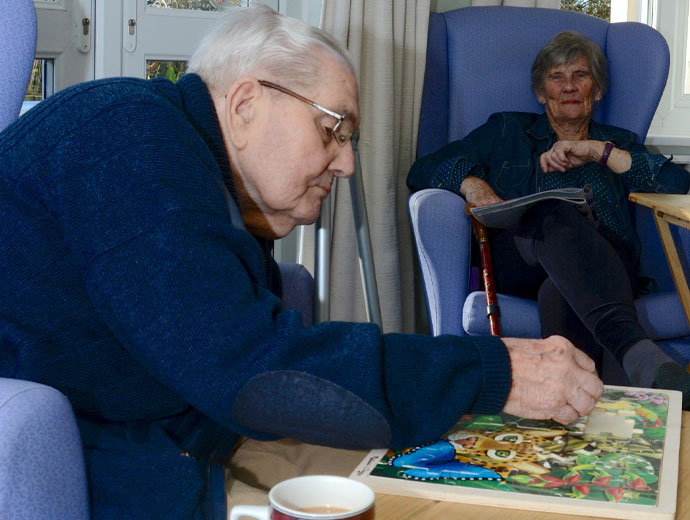
There are many opportunities to volunteer for hospice. Vigil volunteers visit dying patients and make phone call to their families. Administrative volunteers work behind the scenes at the hospice and help out with office tasks. There are also bereavement coordinators who make phone call to relatives of the deceased. You can find out more about each type of volunteer by reading the following. Other than these volunteer opportunities, hospices are looking for volunteers who can address envelopes and help with errands.
Bereavement volunteers make phone calls to bereaved families
Bereavement volunteers are already volunteers for patient support. They undergo an orientation to the agency and 16 hours training in bereavement. The training can be divided into three groups: in-home visitation, telephone and mail-outs for grief support. Volunteers with prior experience will need to train for eight hours or 16 depending on the program. Volunteers contact families in their grief on a weekly or monthly schedule.

Administrative volunteers assist hospice staff
Hospice volunteers assist hospice staff in many ways. They provide direct care for patients and caregivers. The hospice team is fortunate to have these volunteers as a resource. Volunteers are able to connect with patients and help with daily activities such as housekeeping and writing letters. They may also assist with community resources, such as grief support groups, by handling phone calls and mailings.
Volunteers of Vigil spend time visiting dying patients
Volunteers at Vigil Hospice are not only there to support the dying patient, but also their families and friends. While hospice staff will always be at the bedside, vigil nurses are available to offer comfort and love to their families and friends. Vigil hospice volunteers learn how to be attentive to the needs and create a peaceful atmosphere. Volunteers like Molly get basic background information about the patients and their families and download books to read aloud.
Bereavement volunteers visit patients
Volunteers in hospice's bereavement program help patients and their families deal with the loss of a loved one. They are trained in hospice bereavement and participate in support groups. They provide valuable feedback and support during the difficult time, and can also help with memorial services and support groups. They can send bereavement letters that help families to focus on the loved one's memory.

Bereavement volunteers provide emotional support
Bereavement volunteer are people who have been through the process of grieving. They offer emotional support for patients and their families. They listen to their patients' concerns, and help them find resources to help them through the grief. These volunteers are available to speak with families in a comfortable setting, offering them time to talk about the loss in a productive way. Hospice bereavement volunteers often act as bereavement group facilitators, helping other bereaved people to cope with the loss of their loved one.
FAQ
What are the various types of insurance for health?
There are three main types:
-
Private health insurance covers many of the costs associated to your medical care. Private companies often offer this type of insurance. You only pay monthly premiums.
-
Public health insurance covers most of the cost of medical care, but there are limits and restrictions on coverage. For example, public insurance will only cover routine visits to doctors, hospitals, labs, X-ray facilities, dental offices, prescription drugs, and certain preventive procedures.
-
The medical savings account (MSA) is used to help you save for future medical expenses. The funds are stored in a separate account. Many employers offer MSA programs. These accounts are exempt from tax and earn interest at rates comparable to savings accounts.
How can I ensure that my family has access health care of the highest quality?
Most states will have a department for health, which helps to ensure that everyone has affordable access to health care. Some states offer programs to help low-income families have children. For more information, please contact the Department of Health in your state.
What is an infectious disease?
Infectious diseases are caused by germs, viruses or parasites. Infectious diseases can spread quickly by close contact. Mumps, rubella (German Measles), whooping cough, rubella (German Measles), measles and mumps are some examples.
What are you opinion on the most pressing issues in public health?
Many people suffer from obesity, diabetes, heart disease, and cancer. These conditions cause more deaths yearly than AIDS, car crashes, and murders combined. High blood pressure, strokes, asthma and arthritis are all caused by poor nutrition, exercise and smoking.
What does it mean to "health promote"?
Promoting health is about helping people live longer and stay healthy. This promotes health rather than treating existing diseases.
It includes activities like:
-
Healthy eating
-
Get enough sleep
-
exercising regularly
-
Staying active and fit
-
Smoking is not permitted
-
managing stress
-
keeping up with vaccinations
-
Avoiding alcohol abuse
-
having regular checkups and screenings
-
Learn how to deal with chronic illnesses.
What does the term "healthcare" mean?
The delivery of services that promote good mental and physical health is called health care.
Why do we have to have medical systems?
People who live in developing countries are often without basic health care. Many people in these areas die before reaching middle age due to infectious diseases like malaria and tuberculosis.
In developed countries, most people get routine checkups and visit their general practitioners for minor illnesses. Yet, many people suffer from chronic diseases such as diabetes and heart disease.
Statistics
- Foreign investment in hospitals—up to 70% ownership- has been encouraged as an incentive for privatization. (en.wikipedia.org)
- Consuming over 10 percent of [3] (en.wikipedia.org)
- The health share of the Gross domestic product (GDP) is expected to continue its upward trend, reaching 19.9 percent of GDP by 2025. (en.wikipedia.org)
- Over the first twenty-five years of this transformation, government contributions to healthcare expenditures have dropped from 36% to 15%, with the burden of managing this decrease falling largely on patients. (en.wikipedia.org)
- The healthcare sector is one of the largest and most complex in the U.S. economy, accounting for 18% of gross domestic product (GDP) in 2020.1 (investopedia.com)
External Links
How To
How do I find home care services
Home care facilities assist people who require help at home. Home care facilities assist those with chronic illnesses, such as Alzheimer's, who can't move or are too elderly to leave their home. These facilities provide services like personal hygiene, meal preparations, laundry, cleaning and medication reminders. They also offer transportation. They often work with rehabilitation specialists, social workers and medical professionals.
The best way to find a home care service provider is through recommendations from friends, family members, local businesses, or online reviews. Once you have identified one or more providers, you should ask about their qualifications as well as their experience. It is important to find a provider who can work flexible hours in order to fit your schedule. Also, make sure they offer emergency assistance 24/7.
Ask your doctor or nurse to refer you. You can search online for "home care" or "nursing homes" if you aren't sure where to look. You can use websites like Yelp and Angie's List or HealthGrades to compare nursing homes.
You may also call your local Area Agency on Aging (AAA) or Visiting Nurse Service Association (VNA) for additional information. These organizations will have lists of agencies in your area that specialize in providing home care services.
It is crucial to find a quality home care agency, as many charge very high fees for patients. Some agencies can charge as much as 100% of the patient's income. To avoid this problem, you should be sure to choose an agency that has been rated highly by the Better Business Bureau. Ask for references from previous clients.
Some states require home care agencies registered with the State Department of Social Services. You can check with your local government to find out which agency registration requirements apply.
When choosing a home-care agency, there are several things you should keep in mind:
-
Avoid any company asking you to pay upfront for services.
-
Be sure to choose a reliable and established business.
-
Particularly if you pay out-of-pocket, be sure to get proof of insurance.
-
You must ensure that the state licenses your agency.
-
Get a written contract that outlines all costs involved with hiring an agency.
-
Confirm that after discharge, the agency will provide follow-up visits.
-
Ask for a listing of certifications and credentials.
-
You should not sign anything without thoroughly reading it.
-
Always read the fine print.
-
Insure and bond the agency.
-
Ask the agency how long they have been in business.
-
Verify that the State Department of Social Welfare has granted the agency a license.
-
Find out if there have been any complaints about the agency.
-
Call the local government agency that regulates homecare agencies.
-
It is important to ensure that staff members answering the phones are qualified to answer any questions you may have about homecare.
-
Contact your attorney or accountant to ensure you understand the tax implications of using home care.
-
For every home care agency you contact, always get at least three bids
-
Choose the lowest bid, but do not settle for less than $30 per hour.
-
Keep in mind that you might need to pay more than one home care agency visit per day.
-
When signing contracts, read everything carefully.